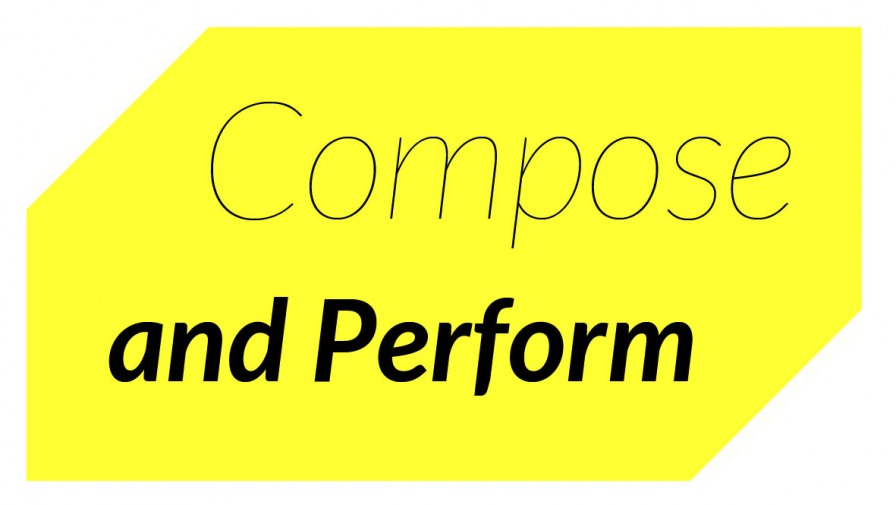Disability, accreditation and music - where next in 2016?

As Drake Music re-launch their 'Compose and Perform' music course (previously 'Introduction to Music') what accreditation and assessment opportunities are there now for disabled musicians?
It's over five years since we launched our 'Introduction to Music' course on to an unsuspecting world. As part of our 'DM Education' initiative, we'd searched for accessible, accredited music courses that disabled musicians could use to develop their skills, but found virtually none that genuinely had inclusivity built in. So, we decided to write our own course, creating a suite of accessible teaching and learning resources to go with it.
Since then, well over 150 disabled musicians have achieved an accredited pass on our course at Entry Level 3, Level 1 or Level. Given the scarce evidence we had found of disabled musicians gaining such passes, we feel that is a huge success. We're really proud to re-launch the course this month with a new name: 'Compose and Perform' with an updated and improved offer for disabled musicians and music teachers/ leaders. We believe that our course is still the best in the country in terms of addressing and understanding the needs of disabled people who want to access music accreditation.
Taking a broader perspective, what has changed in accreditation and assessment opportunities for disabled musicians in those five years?
The National Plan for Music Education made some bold and welcome statements about the needs of disabled young people being prioritised by music hubs. The jury is out on how much progress has been made nationally around progression routes; some music hubs have focused on Arts Award and the introduction of the Explore and Discover courses has meant many more disabled young people have been able to participate meaningfully. However, Arts Award by its nature has a cross arts agenda, as opposed to purely music focused; and although anecdotally, we know that many disabled young people are accessing Arts Award, Trinity do not currently collect data around how many.
Recent data from the DfE show that 6.5% of pupils participating regularly in instrumental ensembles and choirs had SEN. This is considerably lower than the 18.3% of pupils with SEN in the national population. It seems logical that improving the chances for disabled young people to learn an instrument, including the opportunity to be asessed or accredited, would have a positive impact on these figures.
GCSE Music figures continue to be on a downward trajectory - not aided by the EBacc issues. Anecdotally I am aware of numerous instances where talented disabled musicians have been disapplied from certain sections of a Music GCSE, meaning their result can only be collated from the remaining parts. This shouldn't be happening in 2016 as part of a progressive education system. Elsewhere, the WJEC board continue to offer music courses at Entry Level 2 and 3 as part of their Creative, Media and Performance Arts Entry Pathways Qualifications
Sounds of Intent has rightly taken its place as the standard for investigating and promoting the musical development of children and young people with learning difficulties. It has had a real impact on many teachers, giving them renewed confidence and enjoyment of their role.
There is encouraging news around Grade Examinations with the recent establishment of a steering group consisting of the main examining boards in the country with the aim of opening up access to their exams to more disabled musicians. Issues to address include revisiting the Joint Council Guidelines which, amongst other things, devises standard rules for how disabled learners should prepare with their teachers and be assessed fairly e.g. any reasonable adjustments. Equally there is a great opportunity to start imagining new courses, for instance those which can embrace assistive music technology. We now have the first ever regional, disabled-led youth orchestra (in the South West) with a National Orchestra planned in the next few years. Many of these musicians play instruments borne of music technology e.g. LinnStrument or via EyeGaze. Both they - and the generation coming up behind them will want to learn skills and practice techniques in the same way as any other young person, and as a sector we need to address this.
Finally, there still remains a significant cut-off point for many disabled musicians when they leave school with opportunities for music making drying up. Many FE colleges are reticent to offer music, citing difficulties with meeting the needs of individual students. I'm certain there are many success stories out there and it would be great to hear many more of them. The proposed Centre for Advanced Training in Bristol may be a significant moment in this story, the only qualm being that it doesn't let other providers 'off the hook' in terms of their responsibilities (as discussed in a recent blog post here)
The above is just a snap shot of the current provision offer. One thing that I feel that has changed since our course first began is that the music sector is now listening and keen to effect change. There still remains a big knowledge gap for many music providors around SEN/D and music - which often shows up as a confidence issue, leading to the dragging of feet. There is leadership out there, and we hope Compose and Perform will continue to be part of that emerging story.
